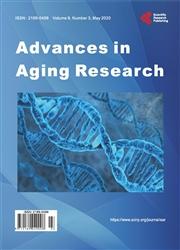The Effects of Standardized Ginkgo Biloba Extracts (GBE) on Subjective Cognitive Decline (SCD) in Middle-Aged Adults: A Review
引用次数: 2
Abstract
Subjective cognitive decline (SCD) is defined as the presence of self-reported cognitive complaints with unimpaired performance in neuropsychological cognitive tests. SCD has been identified as a precursor of mild cognitive impairment (MCI) and potentially represents the earliest clinical sign of Alzheimer’s disease (AD). Standardized extracts of Ginkgo biloba (GBE) are widely used as a treatment for cognitive impairment. Nonetheless, most of the available review articles focus on the effects of GBE in MCI and dementia but not in SCD and its specific cognitive effects. Thus, this review collects and discusses the available published clinical data for the effects of standardized GBE on the early stages of cognitive decline among an age group where SCD becomes a topic—the middle-aged adults. Randomized clinical trials (RCTs), systematic reviews and meta-analyses of standardized GBEs in cognitive decline subjects were searched using PubMed/MEDLINE, Science direct, Cochrane, and Google Scholar until January 2019. Data from relevant RCT were critically evaluated to determine the potential effects of GBE on SCD. The results showed that the number of available GBE studies on SCD is small. Eight studies were selected in which subjects reported memory impairment, in some cases with concerns (worries), and with an average age at onset SCD of 60 years. Six studies gave a proof of efficacy for GBE for the treatment of SCD in at least one cognitive parameter. One study is inconclusive, however, a post-hoc analysis demonstrates efficacy in preventing AD with intake >4 years. The most common GBE dosage used was 240 mg GBE/day over a minimum period of 8 weeks. Hence, there might be beneficial effects of GBE to prevent, improve or delay SCD in the generation of 50 years or older. However, larger, well-defined RCTs using SCD criteria are necessary to further substantiate this effect in SCD subjects.标准银杏叶提取物对中老年人主观认知能力下降的影响
主观认知能力下降(SCD)被定义为在神经心理认知测试中表现不佳的自我报告的认知抱怨的存在。SCD已被确定为轻度认知障碍(MCI)的前兆,并可能代表阿尔茨海默病(AD)的最早临床症状。银杏标准提取物(GBE)被广泛用于治疗认知障碍。尽管如此,大多数可用的综述文章都集中在GBE对MCI和痴呆的影响,而不是对SCD及其特定的认知影响。因此,这篇综述收集并讨论了标准化GBE对SCD成为一个话题的年龄组——中年人——认知能力下降早期阶段影响的现有已发表临床数据。在2019年1月之前,使用PubMed/MEDLINE、Science direct、Cochrane和Google Scholar搜索认知能力下降受试者的随机临床试验(RCT)、系统综述和标准化GBE的荟萃分析。对相关随机对照试验的数据进行了严格评估,以确定GBE对SCD的潜在影响。结果表明,关于SCD的GBE研究数量很少。选择了八项研究,其中受试者报告了记忆障碍,在某些情况下有顾虑(担忧),SCD发病时的平均年龄为60岁。六项研究证明了GBE在至少一个认知参数方面对SCD的疗效。然而,一项研究没有结论,一项事后分析表明,摄入>4年的AD预防效果良好。最常见的GBE剂量为240 mg GBE/天,最短时间为8周。因此,GBE可能对50岁或50岁以上的一代人预防、改善或延迟SCD有有益作用。然而,有必要使用SCD标准进行更大规模、定义明确的随机对照试验,以进一步证实SCD受试者的这种影响。
本文章由计算机程序翻译,如有差异,请以英文原文为准。
求助全文
约1分钟内获得全文
求助全文

 求助内容:
求助内容: 应助结果提醒方式:
应助结果提醒方式:


